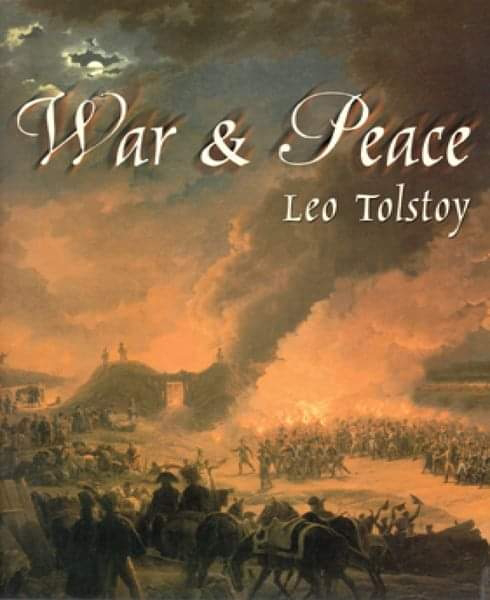"War and Peace" by Leo Tolstoy, a monumental achievement of Russian literature, presents an intricate tapestry of human experience against the dramatic backdrop of the Napoleonic Wars.
"War and Peace" by Leo Tolstoy, a monumental achievement of Russian literature, presents an intricate tapestry of human experience against the dramatic backdrop of the Napoleonic Wars. At its core, the novel is a profound meditation on the inexorable forces of history and the deeply personal struggles of individuals caught in its tide.
The narrative unfolds through the lives of the Rostovs, Bolkonskys, and Bezukhovs, aristocratic families whose fates intertwine with the historical events shaping early 19th-century Russia. Central to the story are Pierre Bezukhov, the introspective and morally searching young nobleman; Prince Andrei Bolkonsky, who grapples with disillusionment and a search for meaning; and Natasha Rostov, whose vivacity and passion embody the spirit of the Russian people.
Tolstoy's brilliance lies in his unparalleled character development. He crafts characters with such psychological depth and authenticity that they become mirrors reflecting the reader's own soul. Their internal battles, their loves, losses, and moral dilemmas, resonate with a timeless quality, making their journeys universally relatable.
The novel's historical canvas is vast yet meticulously detailed. Tolstoy recreates the era with astonishing accuracy, from the grandeur of Tsarist courts to the horrors of the battlefield. His depiction of events like the French invasion of Russia is not just a backdrop but a critical component of the narrative, providing a stark contrast to the intimate human dramas unfolding.
Thematically, "War and Peace" is a rich exploration of existential queries. It delves into questions about the nature of history, the role of fate, and the quest for happiness. Through the experiences of its characters, the novel scrutinizes the impact of war on society and the individual psyche, offering profound insights into the human condition.
Tolstoy also uses the novel as a vehicle for his philosophical musings, particularly on history's philosophy and the inevitability of events. These digressions, though intellectually stimulating, can be challenging for readers and at times disrupt the narrative flow.
The novel's length and complexity are often noted as daunting. Its expansive scope and the depth of its philosophical and historical content can overwhelm readers unprepared for such a literary journey.
"War and Peace" stands as a timeless masterpiece, offering an immersive exploration of human nature, society, and historical forces. Its rich characterizations, historical depth, and philosophical breadth make it a challenging yet immensely rewarding read, a testament to Tolstoy's genius and a cornerstone of world literature.


